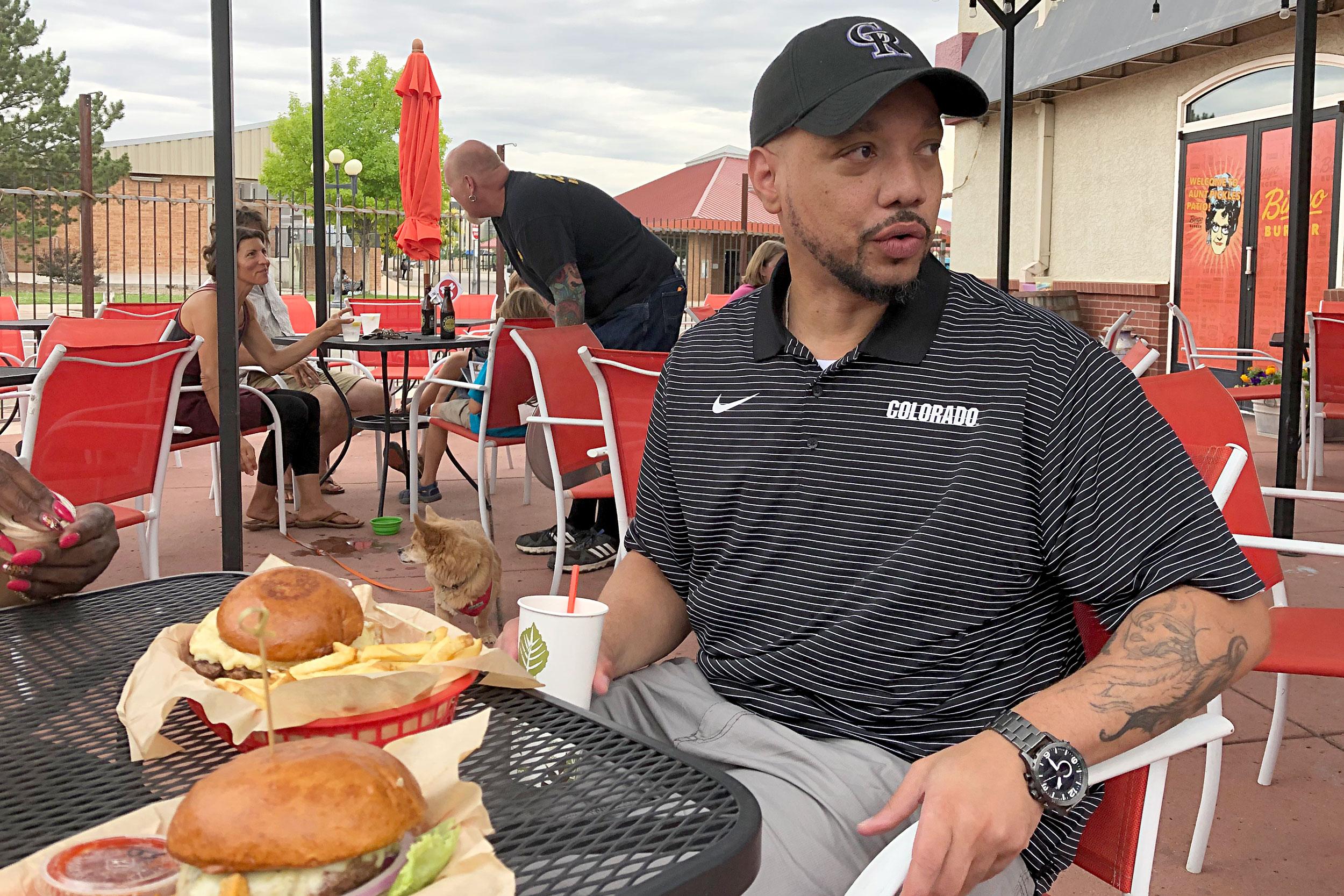
For Curtis Brooks, life outside prison means appreciating every day, but it’s been an adjustment.
At age 15, Brooks was sentenced to life without parole for his part in a 1995 murder in Aurora. Last July, at age 40, he walked out of the Limon Correctional Facility, about 90 miles southeast of Denver.
Brooks is one of hundreds of juveniles who received automatic sentences of life without parole and are now being released from prison. The change in their fate is due, in large part, to a 2012 U.S. Supreme Court ruling that declared mandatory sentences of life without parole for juveniles are unconstitutional.
Former Democratic Gov. John Hickenlooper granted Brooks clemency in 2018. Other prisoners have been resentenced through the court system. Many now live for the first time as adults in a world that’s changed dramatically since they were incarcerated.
Paroled to Maryland, where he grew up and has relatives, Brooks recently marked his six-month anniversary as a free man.
“Everything is still new and fresh for me,” he said. “Just having the freedom to wake up in the morning and [the] opportunity to choose your life's direction is a big thing for me.”
His first-degree murder conviction stemmed from a robbery that killed a 24-year-old Christopher Ramos. A group of boys Brooks was with hatched a plan to steal a car that went wrong. One of the boys fired a gun that killed Ramos. Brooks’ conviction falls under Colorado’s felony murder rule, which states a person can be charged with first-degree murder for killing someone, even if they didn’t directly cause the person’s death.
Ramos’ family objected to Brooks’ early release and wrote a letter to oppose the clemency decision.
One of the most challenging things Brooks has faced since his release is forming relationships and speaking about this past.
“I will always let people know exactly what my circumstances are out of fairness to them,” he said. “And then those people immediately vanish and I don't hear anything from them ever again.”
Brooks has observed a lot of cultural changes, including less human interaction as people have delved deeper into technology. After all, there is little access behind bars to computers or mobile phones.
At some point soon, Brooks plans to return to Colorado and hopes to meet with Dean Williams, head of the Colorado Department of Corrections. Williams has vowed to reform the system to better prepare inmates for release and reduce the likelihood that they’ll return to prison.
Brooks’ own experience has given him some ideas of how the system should change.
He suggests a new prison unit with fewer restrictions, mirroring what parole will be like when inmates are released.
“You live in this unit, you have your work assignments, you have a curfew that you have to meet up with, and a parole officer who you have to keep your meetings with,” said Brooks, who got the idea from a buddy who’s still behind bars.
The unit would allow inmates to escape the monotony of prison life where there’s no chance for independent thinking. It would “allow people to grow and change and be better citizens when they come out instead of coming out with nothing, completely unprepared.”
Related stories
- Curtis Brooks Walks Free After 24 Years: ‘I’m Ready To Go’
- Former Juror Sent A 15-Year-Old To Prison For Life. Now He Wants Him Released
- Hickenlooper Grants Clemency For Curtis Brooks And Five Others Sentenced To Life Without Parole
- To Keep Inmates From Coming Back, Colorado’s Prison Chief Wants To Ease The Culture Shock Of Their Release








